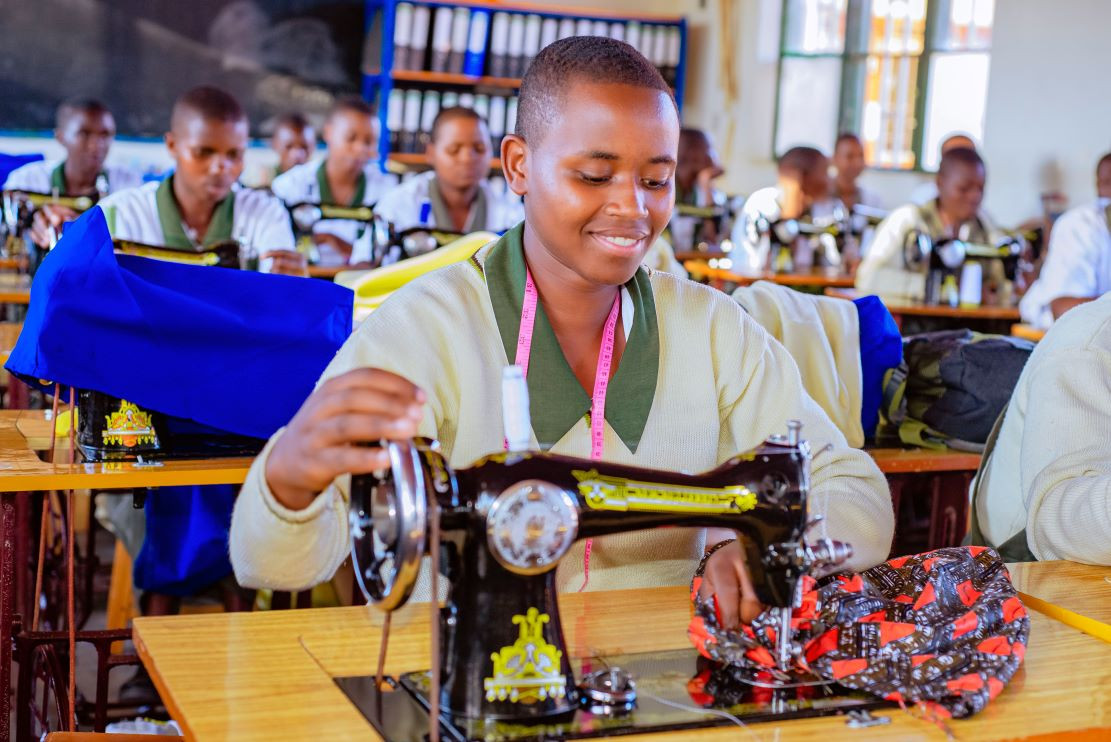
In the rural stretches of Shyogwe Sector, where 34% of youth from economically disadvantaged families face the challenge of unemployment, 66% of them have not completed secondary studies, 29% completed secondary school while 5% completed University. Leadership Academy of Hope for Family undertakes a transformative initiative—Youth Economic Empowerment Program. This program is strategically designed to uplift and support unemployed youth through focused training in entrepreneurship, leadership, reproductive health, and human rights education. Following this comprehensive training, Hope of Family ensures that these empowered youths have the opportunity to attend Technical and Vocational Education and Training (TVET) schools, initiating a cycle of empowerment that catalyzes the development of their families and the broader community which will play a vital role in children’s education.
Program Components:
Entrepreneurship Training:
The program commences with intensive entrepreneurship training to equip youth with practical skills essential for establishing and managing businesses. Modules cover business planning, financial management, marketing, and risk assessment, fostering the development of economically sustainable ventures.
Leadership Development:
Recognizing the pivotal role of leadership in rural development, the academy integrates leadership development into its curriculum. Participants undergo training to enhance their leadership qualities, decision-making skills, and community engagement, empowering them to become agents of positive change within their localities.
Reproductive Health Education:
A holistic approach is embraced with the inclusion of reproductive health education. The urgency of addressing reproductive health concerns is underscored by alarming statistics of 2023 revealing that 409 youth and 66 teenagers have experienced pregnancy in Shyogwe Sector. Youth are educated on family planning, sexual health, and overall well-being, fostering responsible decision-making and promoting healthy lifestyles.
Human Rights Education:
The academy seamlessly weaves human rights education into the program, cultivating an understanding of basic rights and responsibilities. Participants gain awareness of their rights as individuals, fostering empowerment and a commitment to advocating for justice and equality.
Transition to TVET Schools:
Post-training, the program facilitates the seamless transition of participants to TVET schools. Hope of Family collaborates closely with these institutions, ensuring a smooth enrollment process and providing financial assistance and scholarships to those in need.
Community Development Commitment:
A distinctive feature of the program is a reciprocal commitment wherein empowered youth pledge to contribute to the development of their families and the community at large specifically in children’s education. This commitment may manifest in various ways, including supporting family businesses, sharing newfound knowledge with family members, or actively participating in community improvement initiatives.
Community Engagement and Collaboration:
Empowered youth are encouraged to actively engage with their communities. Collaborative initiatives, such as community workshops, awareness campaigns, and sustainable development projects, enable participants to apply their skills for the benefit of the entire community.
Monitoring and Continuous Support:
Regular monitoring and evaluation processes are implemented to assess the progress of participants. The program ensures continuous support for participants, addressing any challenges they may encounter during their journey of empowerment.